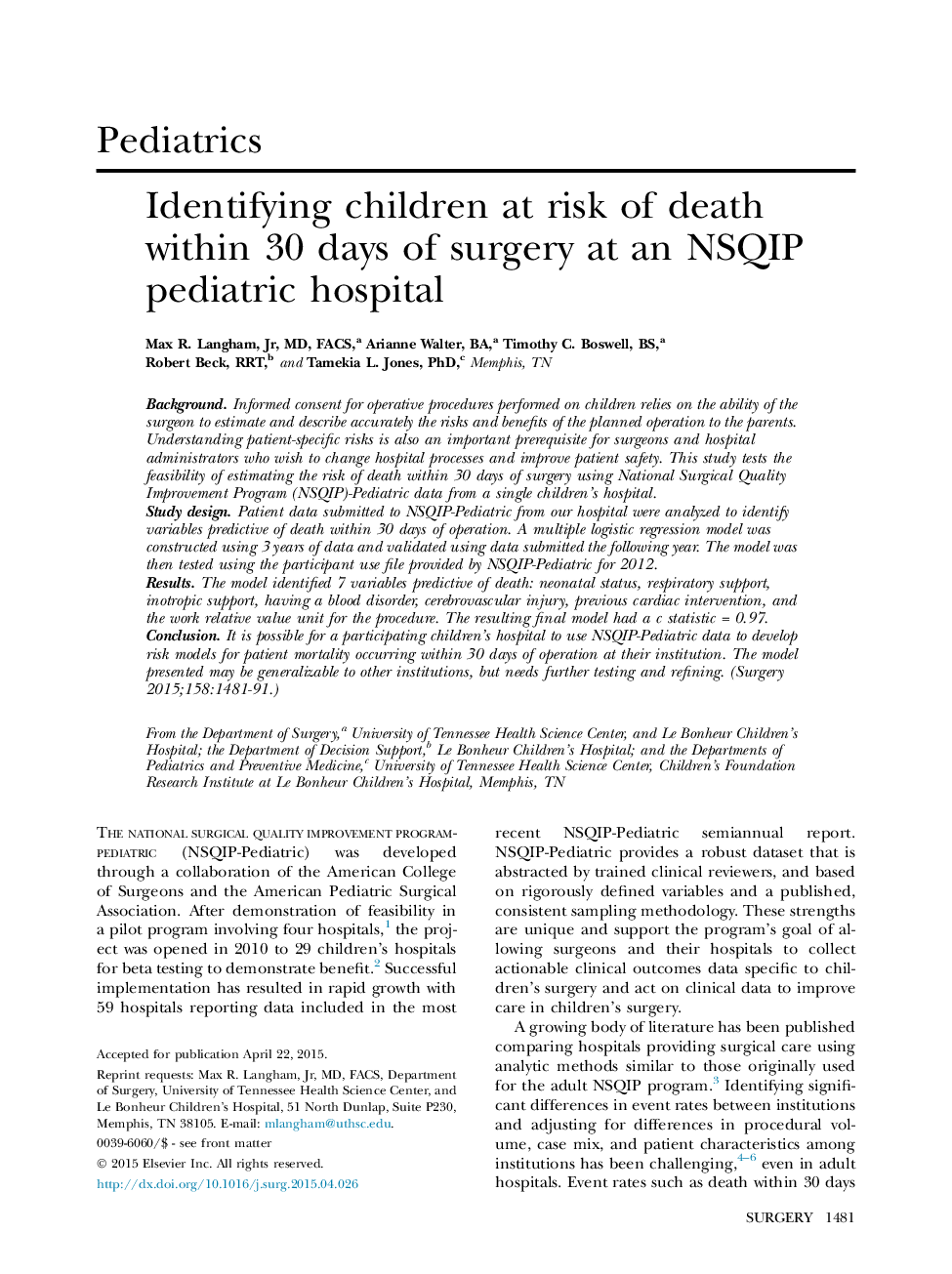| Article ID | Journal | Published Year | Pages | File Type |
|---|---|---|---|---|
| 4306402 | Surgery | 2015 | 11 Pages |
BackgroundInformed consent for operative procedures performed on children relies on the ability of the surgeon to estimate and describe accurately the risks and benefits of the planned operation to the parents. Understanding patient-specific risks is also an important prerequisite for surgeons and hospital administrators who wish to change hospital processes and improve patient safety. This study tests the feasibility of estimating the risk of death within 30 days of surgery using National Surgical Quality Improvement Program (NSQIP)-Pediatric data from a single children's hospital.Study designPatient data submitted to NSQIP-Pediatric from our hospital were analyzed to identify variables predictive of death within 30 days of operation. A multiple logistic regression model was constructed using 3 years of data and validated using data submitted the following year. The model was then tested using the participant use file provided by NSQIP-Pediatric for 2012.ResultsThe model identified 7 variables predictive of death: neonatal status, respiratory support, inotropic support, having a blood disorder, cerebrovascular injury, previous cardiac intervention, and the work relative value unit for the procedure. The resulting final model had a c statistic = 0.97.ConclusionIt is possible for a participating children's hospital to use NSQIP-Pediatric data to develop risk models for patient mortality occurring within 30 days of operation at their institution. The model presented may be generalizable to other institutions, but needs further testing and refining.
